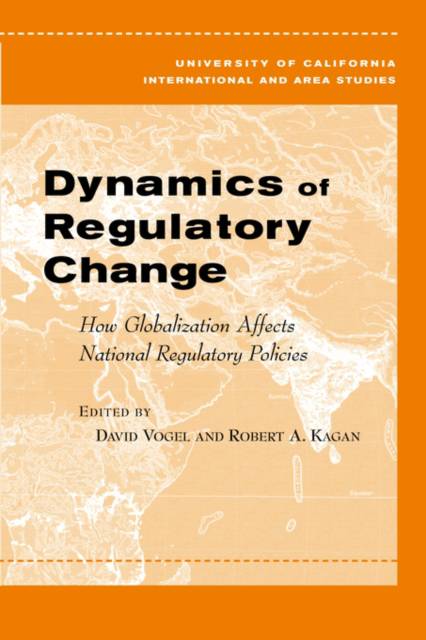
- Afhalen na 1 uur in een winkel met voorraad
- Gratis thuislevering in België vanaf € 30
- Ruim aanbod met 7 miljoen producten
- Afhalen na 1 uur in een winkel met voorraad
- Gratis thuislevering in België vanaf € 30
- Ruim aanbod met 7 miljoen producten
Zoeken
Dynamics of Regulatory Change
How Globalization Affects National Regulatory Policies
€ 59,45
+ 118 punten
Omschrijving
Critics of globalization claim that economic liberalization leads to a lowering of regulatory standards. As capital and corporations move more freely across national boundaries, a race to the bottom results as governments are forced to weaken labor and environmental standards to retain current contracts or attract new business. The essays in this volume argue that, on the contrary, under certain circumstances global economic integration can actually lead to the strengthening of consumer and environmental standards. This volume extends the argument of David Vogel's book Trading Up, which discussed environmental standards, by focusing on the impact of globalization on labor rights, women's rights and capital market regulations.
Specificaties
Betrokkenen
- Uitgeverij:
Inhoud
- Aantal bladzijden:
- 385
- Taal:
- Engels
- Reeks:
Eigenschappen
- Productcode (EAN):
- 9780520245358
- Verschijningsdatum:
- 31/12/2004
- Uitvoering:
- Paperback
- Formaat:
- Trade paperback (VS)
- Afmetingen:
- 152 mm x 229 mm
- Gewicht:
- 553 g

Alleen bij Standaard Boekhandel
+ 118 punten op je klantenkaart van Standaard Boekhandel
Beoordelingen
We publiceren alleen reviews die voldoen aan de voorwaarden voor reviews. Bekijk onze voorwaarden voor reviews.










